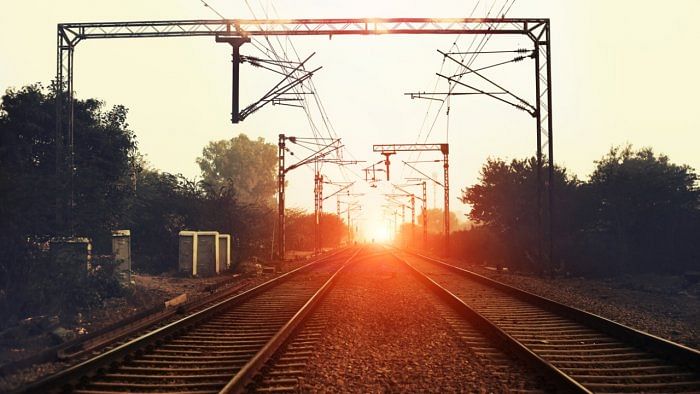
Facing stiff resistance from the locals and no nod from the Centre, the SilverLine semi-high-speed rail project of Kerala seems to be derailing.
However, new alternatives to revamp the existing railway network are gaining steam. New alternatives, such as — improving the signal system to increase the trains’ speeds, straightening curves in the current lines, and laying new tracks — are on the cards.
Experts say that the easiest option is to strengthen the signalling system, which will increase the speed of existing trains by at least 15% and help introduce new trains, preferably with limited stops, ensuring a faster commute.
Trains run only at an average speed of 40 to 60 km/hr in Kerala. Currently, there are 626 curves in the rail lines and too many stops, affecting the trains’ speeds.
‘Metroman’ E Sreedharan said that strengthening the signal systems could enable trains to run at higher speeds safely and reduce the time lost for stopping at stations.
He said that straightening the existing lines would be difficult as it would require massive disruption of services.
He also suggested that Kerala should consider a new, fully-elevated rail line as a future option. An elevated line would comparatively require less land and minimum displacement of people. It would not affect natural water flow, a significant concern raised against the K-Rail rail project involving embankments and protection walls.
While BJP leaders from Kerala have mooted alternatives for SilverLine, experts opposing the project also welcome the discussions in this regard.
Social activist and engineer Sridhar Radhakrishnan said that it was good that more alternatives arose as improving the transport infrastructure is essential. He said that the government should initiate discussions by engaging international experts to evolve a faster transport project that suits Kerala.
The proposed 530-kilometre semi-high-speed rail project was taken up by Kerala Rail Development Corporation Limited (K-Rail), a joint venture of the Kerala government and the railways. The project’s highlight was reducing travel time between Thiruvananthapuram and Kasaragod to around four hours, which takes at least ten hours by road and rail. But the project, with an estimated cost of over Rs 1 lakh crore, faced stiff opposition owing to the massive eviction of people, environmental concerns and the poor financial situation of Kerala.
Even though Chief Minister Pinarayi Vijayan had been stating that the project would be implemented at any cost, after the setback faced by the CPM in the recent Assembly by-poll, the state government maintained that the project would materialise if the Centre approved it.